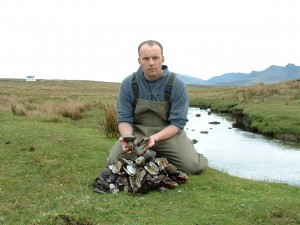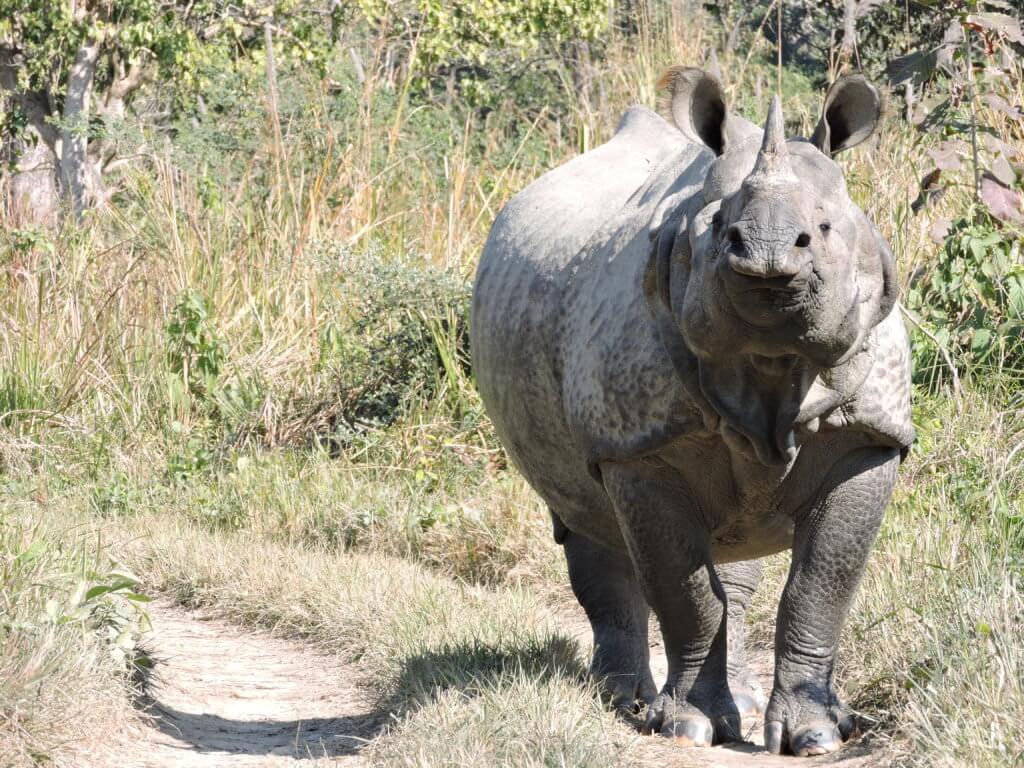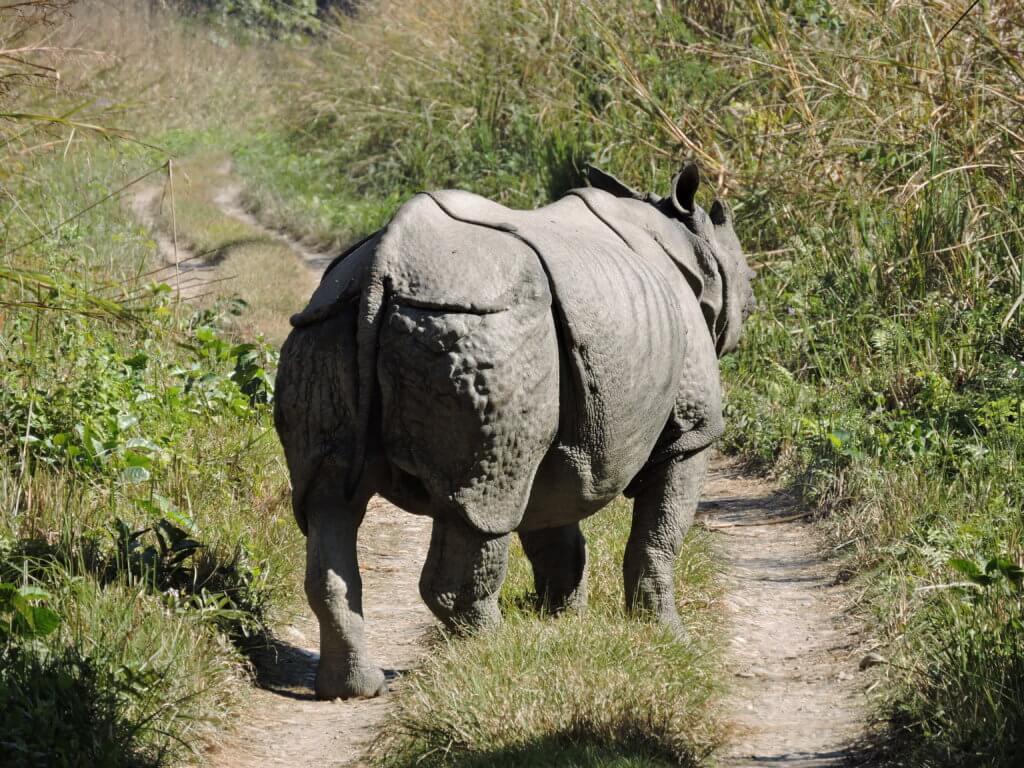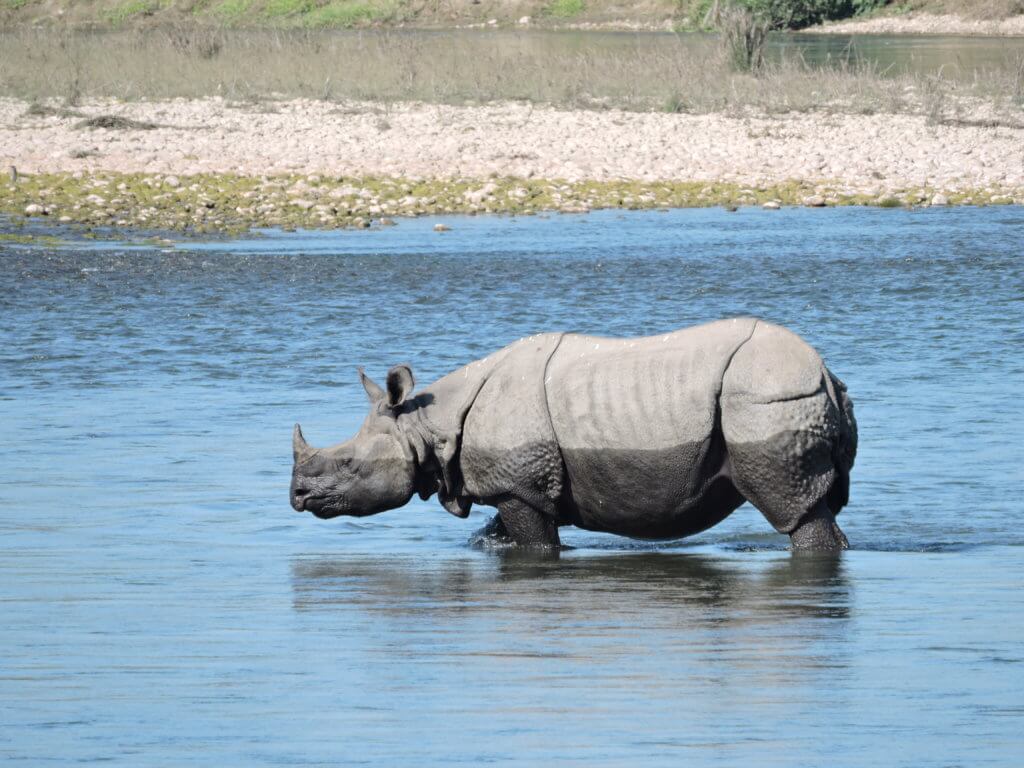 Peter Cosgrove carried out the first national pearl mussel survey and in one of those wonderful moments of happenstance, submitted his final report which recommended full legal protection during a periodic review of the Wildlife and Countryside Act. It had the desired effect and the law was changed in 1998 and Peter always highlights this to those cynics who think our conservation efforts are pointless and make little or no difference. Since then Peter has spent hundreds of days in more than a thousand Scottish rivers and burns surveying for pearl mussels. His interest in pearl mussels transfers into a general interest in wildlife crime.
Peter Cosgrove carried out the first national pearl mussel survey and in one of those wonderful moments of happenstance, submitted his final report which recommended full legal protection during a periodic review of the Wildlife and Countryside Act. It had the desired effect and the law was changed in 1998 and Peter always highlights this to those cynics who think our conservation efforts are pointless and make little or no difference. Since then Peter has spent hundreds of days in more than a thousand Scottish rivers and burns surveying for pearl mussels. His interest in pearl mussels transfers into a general interest in wildlife crime.
Wildlife crime in Nepal
Over Christmas and New Year I had a fabulous 3 week trip to Nepal with my family. One of our targets was to see the endangered Great One-horned Rhino, which we easily saw at Chitwan National Park. These cool, dangerous and almost prehistoric looking animals were in the mood for mating and we saw ca. a dozen, some of the males with wounds from battling each other. It was a true wildlife spectacular.

This species was brought to the brink of extinction by rhino poachers just over a decade ago. In 2002 more than 38 rhinos were confirmed killed in Chitwan National Park. Since then, the Nepalese Government’s response has been nothing short of brilliant. The Nepalese Army’s Shree Shreejung battalion is now based at Chitwan National Park, where 800 armed soldiers patrol the 932km2 national park, along with teams of anti-poaching national park wardens. To stop corruption (and associated poaching), anyone entering the national park has to go through 2-3 different sets of army check points and once inside the park, solders are present throughout and patrol on foot and bicycle and can challenge anyone they meet. As we entered the park at dawn, the night patrols were returning to base and reporting in. Daily national park entrance fees from wildlife-tourists such as ourselves go directly to supporting the anti-poaching work at Chitwan. WWF and other NGOs have also provided critical financial and logistical support.

The government also works closely with local communities in the park’s 766km2 buffer zone and rewards them financially for reporting poachers or suspicious people/activity. Nepal celebrated zero poaching of Great One horned Rhinos in 2011, 2013 and 2015. On the entrance board at the army check point it stated “Number of days since last poaching incident = 524 days”. It is estimated that Chitwan National Park now holds over 600 Great One-horned Rhinos. There is clearly a deep sense of pride in what has been achieved and the financial benefit from increasing tourist revenue that has followed.

Chitwan National Park is also now home to one of the world’s largest and most important big cat populations. Since the national park was established the small population of ca. 22 Bengal Tigers has increased to an estimated 120 individuals today. Populations of Leopards and Sloth Bears have also benefited too.
Tackling wildlife crime can and does work if you have the political will to do it. The Nepalese army battalions have to be based somewhere, so why not have base them in the poaching hot-spots? With this in mind, I propose we move the SAS HQ from Hereford to the North York Moors National Park and the Paras HQ from Pudsey to the Peak District National Park to stamp out wildlife crime at these sites once and for all.
[registration_form]
well, …. well done them. Shows what you can do when you really want to. What a great story of success for once. Thinks: eternal vigilance is the price of liberty, as there’s no permanent, final success. Here, here for moving our army bases. Good training for them in all sorts of skills. Traditional army ones, and others!
I find it interesting that demonstrably successful approaches to tackling serious wildlife crime, such as those in Nepal, are ignored in the UK. The Nepalese don’t seem to think moving rhinos away from their preferred national park habitats to somewhere else is a viable option nor do they ask permission from the representatives of the rhino poaching gangs what to do.
Fabulous blog, thanks Peter. It should put us to shame to know how other countries can succeed where we fail. But can you imagine the response from folk in this country who moan about CCTV in the street and speed cameras!
Thanks. Peter for the blog and for your great achievement re pearl mussel conservation.
I had to look this mollusc up and found that the more I know the more I know I don’t know.
But thanks for oxygenating my synapses just a little bit. Let’s hope from now on that many more of those fish gill grabbing, hitch-hiking mussel larvae will get plenty of that O2 stuff and go on to achieve such fantastic longevity (130+?).
I used to spend a significant amount of WWF-UK’s species budget in Nepal because we could see the results (rhino, tiger and snow leopard). It’s not perfect (nowhere is) but I always liked going to Nepal (and Bhutan next door) because they take their conservation seriously. I once suggested to DEFRA in a meeting (Mark was probably there) that they look to Nepal if they want to look at ways of successfully carrying out large scale reforestation, you’d have thought I’d sworn at them by their reaction. UK is way too insular and there are lots of good examples of conservation like this one that we should be learning from.
Callum, I couldn’t agree more. Perhaps those of us who have the experience of witnessing effective conservation work overseas should be offering to write more guest blogs in 2017? I agree that nowhere, including Nepal, is perfect but I am constantly impressed with what can be achieved by others, especially with limited resources.
As, there is more conversational activities need to be done in wildlife in Nepal. Many organizations are working in this
Thanks. Peter for the blog and for your great achievement re pearl mussel conservation.